Exploring AI Ethics: Implications for the Future

In the rapidly advancing landscape of artificial intelligence (AI), its ethical implications are increasingly becoming a focal point for discussion. As AI technologies continue to permeate various aspects of our lives, from healthcare to finance and beyond, it’s crucial to navigate the ethical challenges they present. In this article, we’ll explore the key ethical considerations surrounding AI and discuss strategies for addressing them.
Transparency and Accountability: One of the foremost ethical concerns with AI is the lack of transparency and accountability in its decision-making processes. AI algorithms often operate as “black boxes,” making it difficult to understand how they arrive at their conclusions. This opacity raises questions about fairness, bias, and accountability. To address this challenge, there’s a growing call for greater transparency in AI systems, accompanied by robust mechanisms for accountability. Organizations developing AI technologies must prioritize transparency in their algorithms’ decision-making processes, enabling stakeholders to understand and scrutinize their actions.
Fairness and Bias: Bias in AI algorithms is a significant ethical concern, as it can perpetuate and exacerbate existing inequalities. AI systems learn from historical data, which may reflect societal biases and prejudices. Consequently, these biases can manifest in AI-driven decisions, leading to discrimination against certain groups. To mitigate bias in AI, developers must adopt strategies such as data preprocessing techniques, algorithmic auditing, and diverse representation in dataset collection. Additionally, ongoing monitoring and evaluation of AI systems can help identify and address bias as it arises.
Privacy and Data Security: The widespread adoption of AI entails the collection and analysis of vast amounts of data, raising significant privacy and data security concerns. Personal data privacy is paramount, and individuals must have control over how their data is collected, used, and shared by AI systems. Organizations must adhere to stringent data protection regulations and implement robust security measures to safeguard sensitive information. Furthermore, the development of privacy-preserving AI techniques, such as federated learning and differential privacy, can enable AI applications while preserving individual privacy rights.
Autonomy and Accountability: As AI systems become increasingly autonomous, questions arise concerning their accountability for actions and decisions. Who is responsible when an AI algorithm makes a mistake or causes harm? Establishing clear lines of accountability is essential to ensure that responsibility for AI-driven outcomes is appropriately assigned. This may involve legal frameworks that delineate liability, as well as mechanisms for oversight and redress. Moreover, ethical guidelines and standards can help guide the responsible development and deployment of AI technologies, emphasizing principles such as beneficence, non-maleficence, and respect for autonomy.
Human-AI Collaboration: Rather than viewing AI as a replacement for human expertise, ethical AI deployment should prioritize human-AI collaboration. Humans bring invaluable judgment, empathy, and contextual understanding to decision-making processes, complementing the analytical capabilities of AI. By integrating AI as a supportive tool in decision-making contexts, we can harness its potential while ensuring that human values and ethics remain central.
In conclusion:
navigating the ethical implications of AI requires a multifaceted approach that addresses transparency, fairness, privacy, accountability, and human-AI collaboration. By actively engaging with these challenges and adopting ethical principles and practices, we can harness the transformative power of AI while upholding fundamental values and principles in our society. As we continue to innovate and deploy AI technologies, it’s imperative to prioritize ethical considerations to build a more equitable and responsible future.





